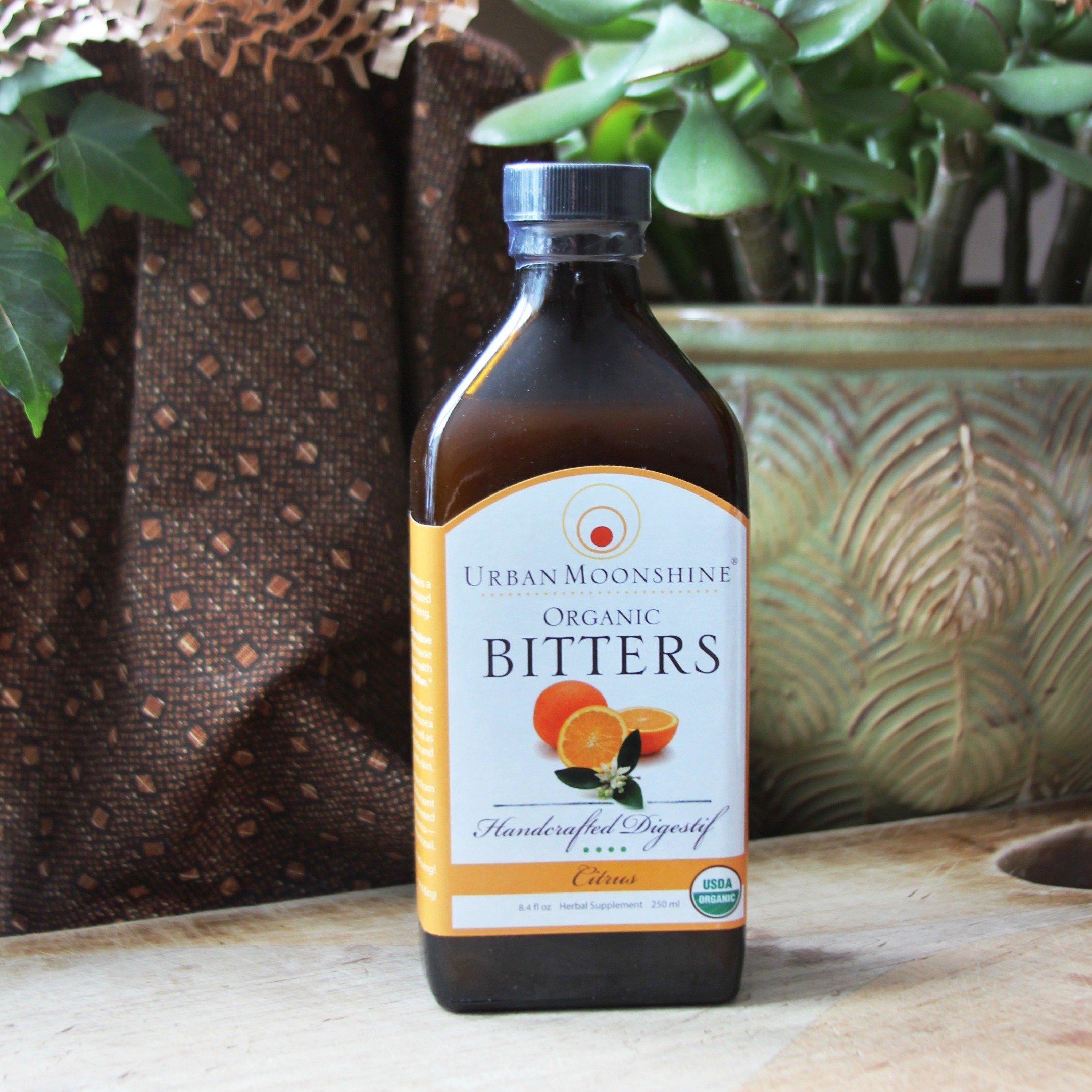Sweet, sour, salty, umami, and bitter. These are the 5 major flavors that the 5,000 taste buds speckling your tongue and throat have been primed to identify. Each with unique gastronomic qualities and health indications, traditional cultures believed in the fundamental importance of consuming a rich balance of all these flavors. However today, with the overwhelming load of sugar-encrusted, salt-sprinkled, and MSG-doused foods filling our plates, bitterness has essentially vanished from the modern palate. This unfortunate disappearance has done more than simply change the tang and smack factor of our foods. In fact, the general lack of bitter flavor in the diet may very well be contributing to widespread problems with digestion and appetite control. We are going to cover the health benefits of drinking herbal bitters to improve your digestive health.
Bitter: A Mysterious Flavor
Bitter is an intriguing flavor. The very most sensitive of all tastes, bitterness has an excitable quality that some people would describe as disagreeable and harsh. The very word “bitter” has even become linguistically associated with expressions of anger, resentment, pain, and reactivity. Yet complex bitter flavor does far more than cause lips to pucker and heads to shake. Known for stimulating the senses and engaging the digestive system, foods possessing a bitter quality have long been valued for their unique ability to cleanse the body and build vitality.
Many cultures revered bitter foods as an essential part of a regular healthy diet. Large numbers of the diverse roots, barks, flowers, and herbs of the wild plant kingdom are bursting with complex bitter flavors. When consumed, such plants naturally stimulate the production of saliva, gastric juices, and bile to balance the appetite and prime digestion. Yet while bitter botanicals were consumed readily by our foraging ancestors, such richly flavored plant foods have been unfortunately lost to the endless aisles of sweetened and salted snacks filling grocery stores today.
10 Reasons to Use Bitters
Including bitter foods in the diet isn't simply a matter of reviving tradition or taste. Bitter-flavored foods also have a rich history in the healing arts. From the wine-infused herbal concoctions used by Ancient Egyptians to the 16th-century prescriptions of famous physician Paracelsus and beyond, elixirs brewed from carefully selected bitter herbs have been treasured as cure-all remedies across the ages. Studies have confirmed that getting an adequate amount of bitter flavor is important for digestive balance and is linked with many related health benefits. Eating bitters regularly has been shown to:
1. Curb sugar cravings
2. Soothe gas and bloating
3. Relieve occasional heartburn
4. Encourage digestive enzymes, bile & HCL production
5. Calm upset stomach and nausea
6. Increase absorption of fat soluble vitamins A, D, E, K
7. Help maintain healthy blood sugar levels
8. Balance appetite
9. Ease constipation and regulate bowel movements
10. Support liver function and healthy skin
Where to Find Bitters
With processed foods delivering artificial, tongue-tingling flavors and spices to addicted mouths, it has become difficult to find quality bitter foods in the marketplace. Even the fruit and vegetable varieties packed into produce departments have been intentionally hybridized and bred to minimize bitterness, selecting instead for qualities of sweetness, bright color, and full shape. While these traits certainly make veggie shopping more appealing to browsing consumers, they also represent a tragic limitation of nutritional value and an overall lack of phytonutrient, anti-oxidant, and flavonoid variety in our foods. Today, true bitter flavor is enjoyed in just a few commonly munched-on items such as greens (particularly dandelion and arugula), coffee, hops, olives, and dark chocolate.
To make up for the general deficit of bitter flavors in most modern diets, many practitioners recommend the use of a supplemental herbal tonic or tincture. Common botanicals that have a naturally bitter flavor include gentian, cascarilla, cassia, orange peel, and cinchona bark among others. Bitter tonics can be found at many health food stores and online, but I personally love our Urban Moonshine Immune Tonic, which has been carefully crafted by a Vermont herbalist using local, certified organic ingredients. For those wishing to avoid the alcohol that is traditionally used as a solvent and preservative in bitter tonics, Flora Swedish Bitters offer a non-alcoholic style that is equally as potent and beneficial. Simply squirt on the tongue after meals and delight in the dazzling flavor of nature's most powerful digestive aid!
To read more on bitters, check out a great article from the Weston A Price Foundation here.

